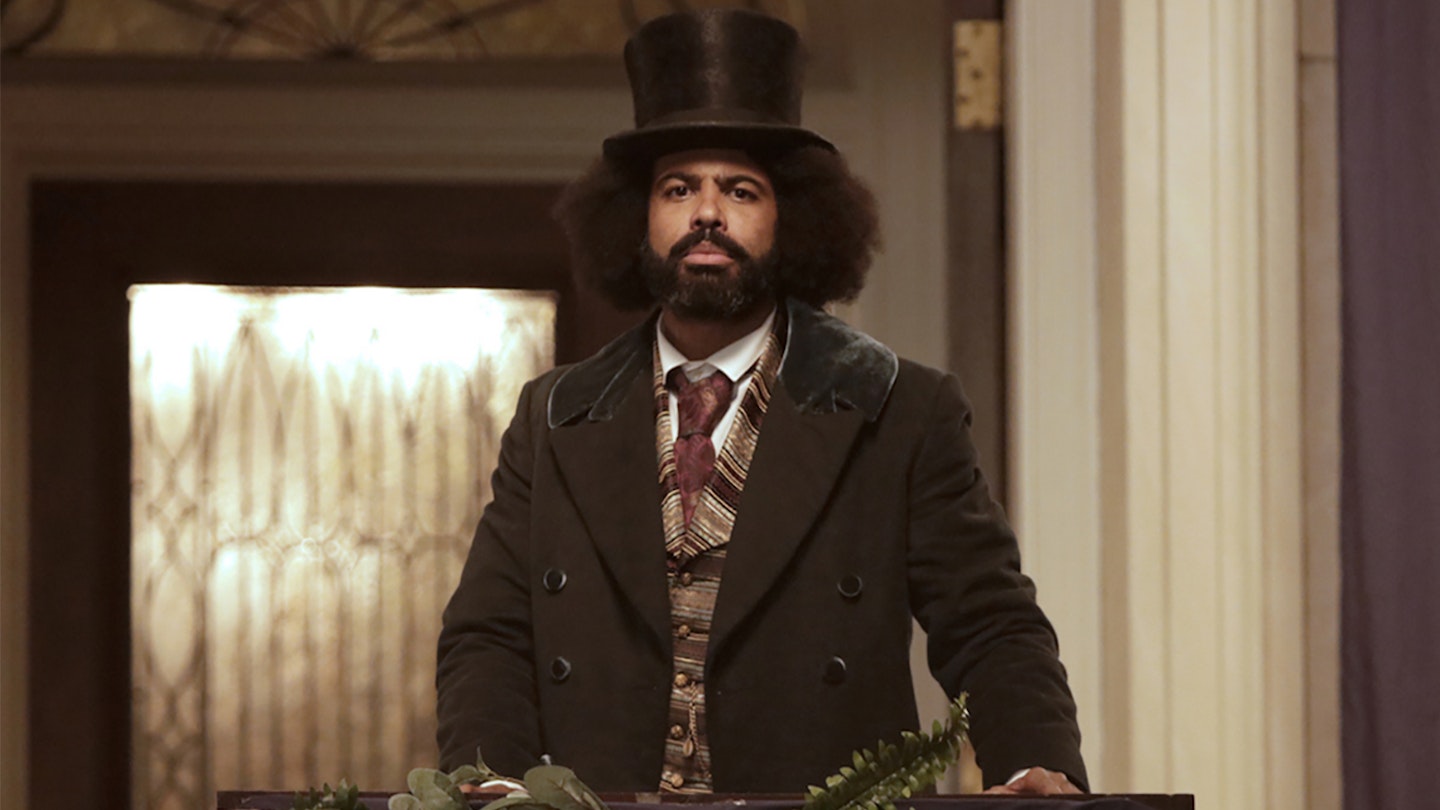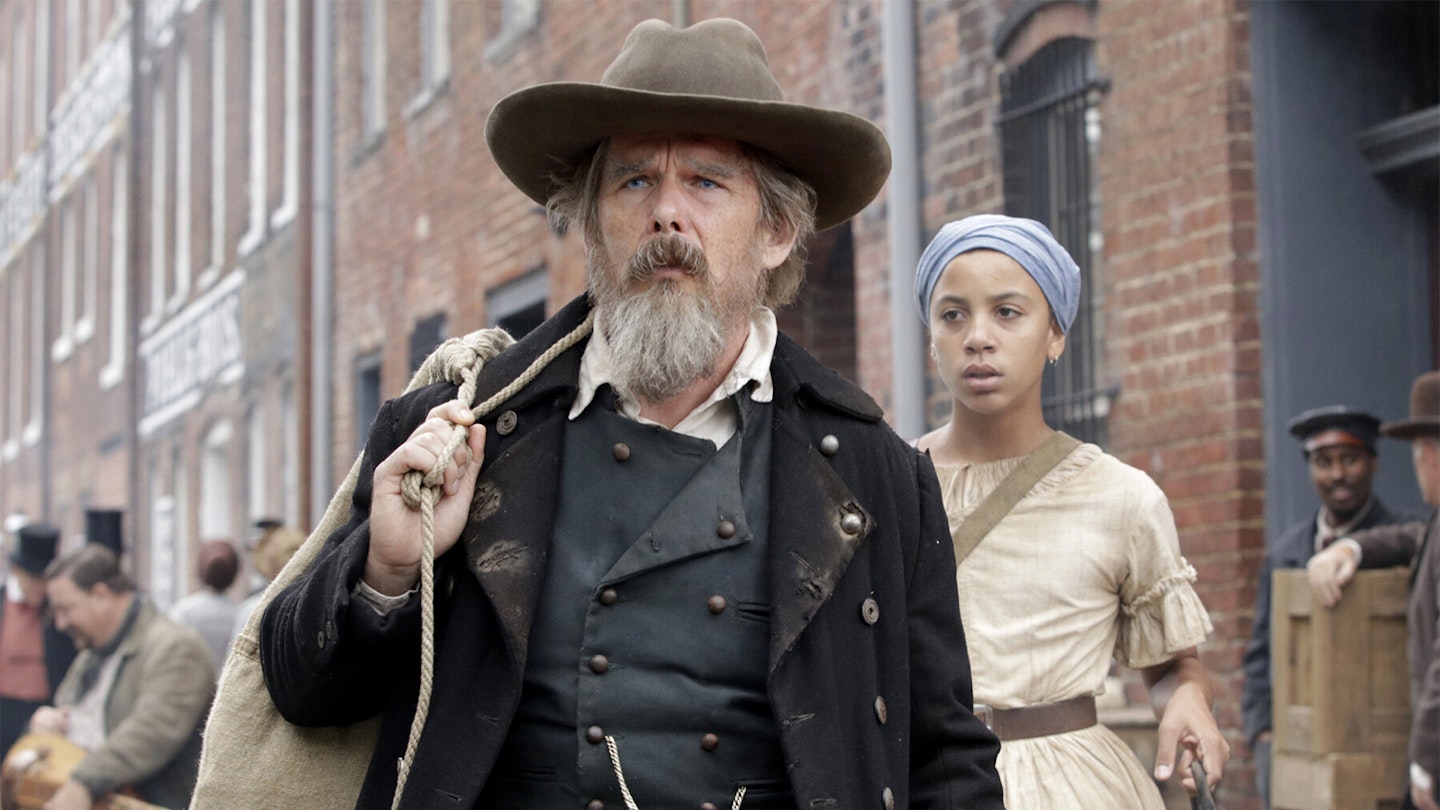Opening on the words “All of this is true… most of it happened”, The Good Lord Bird is historical revisionism played for maximum fun. Shot through with energy, smart laughs and well-staged action, it is dominated by a mesmerising Ethan Hawke, sporting the longest beard of his career, as the Bible-spouting abolitionist John Brown, whose efforts to end slavery kick-started the Civil War. Adapted by Hawke and Mark Richard from James McBride’s award-winning novel, each episode begins with a funky, animated title sequence and never lets up, sewing together pointed commentary about race, white ally-dom and history in-between larky set-pieces scored to lively, often period-inappropriate music.

Starting with Brown uttering his final words (“What a beautiful country”) as he is hanged, the action spools back to the crusading reformist liberating an enslaved family, which ends with pre-teen Henry Shackleford (Joshua Caleb Johnson) taking up with Brown’s ‘Guardians Of The Gospel’, moving through the country freeing the incarcerated. But this isn’t just a white saviour story. Henry, rechristened ‘Onion’ after one of Brown’s lucky charms, is the emotional centre of the show; due to a misunderstanding that goes uncorrected, Brown is under the impression that Onion is a girl, so the latter spends his days in a dress as he goes about raising support for the cause. Onion becomes the eyes we see this world through and, even if too much heavy lifting is done by voiceover, Johnson makes him an engaging, likeable presence.
The pilot is playfully but vigorously directed by Albert Hughes (Menace II Society, From Hell) and the pace and power are kept up by a clutch of mostly Black filmmakers, including Kevin Hooks (Passenger 57, Prison Break) and Darnell Martin (Grey’s Anatomy, The Walking Dead). Sensitive to Black perspectives, the show has a keen eye for both the broad overview of 19th-century race relations — time after time, white characters overlook Black characters in their keenness to speak for them — and the detail — the importance of Black people being photographed, then a new medium, as a way of staving off stereotypes. Iconic figures from Black history like Frederick Douglass (a vibrant Daveed Diggs) and Harriet Tubman (Zainab Jah) make cameos, but this so much more freewheeling than an Antebellum South Wikipedia entry. In this regard, it takes its cue from Hawke’s Brown, delivering fiery, flamboyant recitations from the Bible (making it a companion piece to First Reformed), but with a charm and twinkle that reveal the goodness inside. One of the standout performances of 2020 in any medium.
